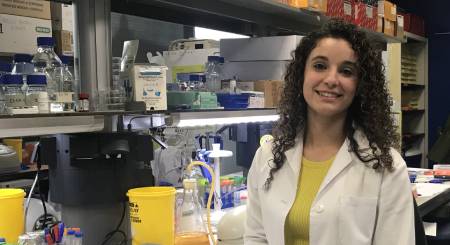Caracterización de genes que causan des-diferenciación hacia células madre del tumor y su relación con Resistencia a terapias antitumorales
Tumors are cellular ecosystems where different subpopulations of cells coexist. Tumor cells compete with non tumoral cells for obtaining more resources, more space and proliferate in a Darwinian dynamic. According to the theory of tumor stem cells, these are divided in turn into cellular subpopulations of a pyramidal /staggered form, of stem cells that in turn give rise to progenitors and these to tumor base cells. While the former would be able to regenerate a tumor, the latter would not have this capacity. It has also been proposed that these tumor stem cells would have more resistance to conventional therapies. This is used by numerous therapeutic approaches that seek for new drugs to selectively eliminate tumor stem cells, based on the idea that the different subpopulations are stable and cannot pass from one state to another. However, tumor cells have an enormous plasticity, not only metabolic but also phenotypic, and de-differentiation of mature tumor cells to cancer initiating cells can occur. This tumor evolution can give rise to more resistance to conventional and targeted therapies, and may be responsible for recurrences and residual disease. Our main goal is characterization of genetic events that cause de-differentiation of mature tumor cells to cancer stem cells the study of how these genes may influence the process of metastasis and the resistance to cancer therapies.



